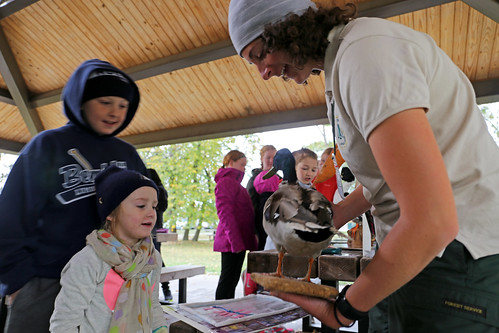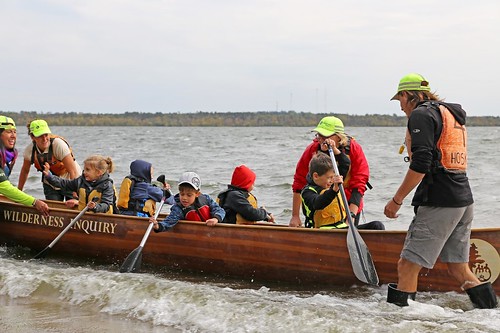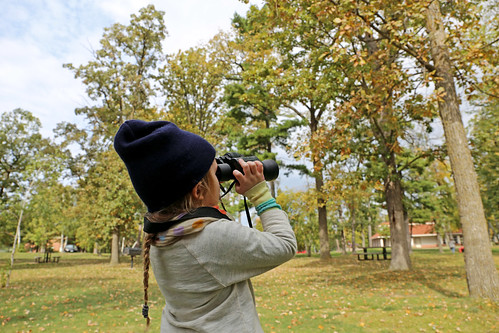
A young girl looks fearfully at the large wooden canoe bobbing on the water. She steps into the canoe and it moves. She yelps, and is given a reassuring smile by her boat captain. She gets settled holding her paddle tightly, convinced with every movement that the canoe will capsize.
The canoe takes off as everyone starts to paddle in sync in order to glide across the water. She begins to relax and enjoy herself, soaking up the sun, blue sky and fresh air. Before she knows it, the canoe is coming to dock, and she’s imagining her next adventure on the water.
This is common with first time participants to Wilderness Inquiry’s Canoemobile. As U.S. Forest Service intern Teresa Butel observed, “Sometimes participants are afraid to get on the boats in the water, but when the paddle is finished, they come back to shore with smiles and want to go again.”

While traveling for 10 weeks with Canoemobile, Teresa acted as a U.S. Forest Service representative and boat captain. She was also a tireless French Voyageur, fearsome river monster and an adventurous bird during migration. All in the name of inspiring future conservation leaders.
For the past five years, the Forest Service’s Urban Connections program has partnered with Canoemobile; however, 2016 was the first time that a representative was able to travel as part of the crew. Teresa’s crew started in northern Minnesota and traveled to the East Coast including Boston Harbor, New York City, and Atlanta. They worked with over 3,300 people in 12 cities, meeting with partners in each area to organize school field trips, extended paddles and community days.
Canoemobile works with partners to incorporate land-based educational activities to inform people about the health of waterways in their backyard, recreation opportunities and how to be good stewards of nature.

One of Teresa’s favorite stops was in Bemidji, Minnesota, where students from The Low Incident Project, a group for students who are blind, deaf and hard of hearing, investigated the water quality of Lake Bemidji with the help of school interpreters. They tested PH, temperature, turbidity and phosphorous levels while introducing students to tools they could use as future scientists. At the U.S. Forest Service station, students learned about the Mississippi Flyway by acting out a bird’s migration.
A canoe trip was planned after lunch, however, the weather didn’t cooperate, so the staff got creative. Students listened to a safety talk and had a relay race to become familiar with safety equipment. They learned basic paddle strokes and were eventually allowed to “take a ride,” with staff walking the canoe through crashing waves along the shore. Students and staff got soaked but left the experience with abated fears about stormy weather and a confidence in experiencing something new outdoors.
